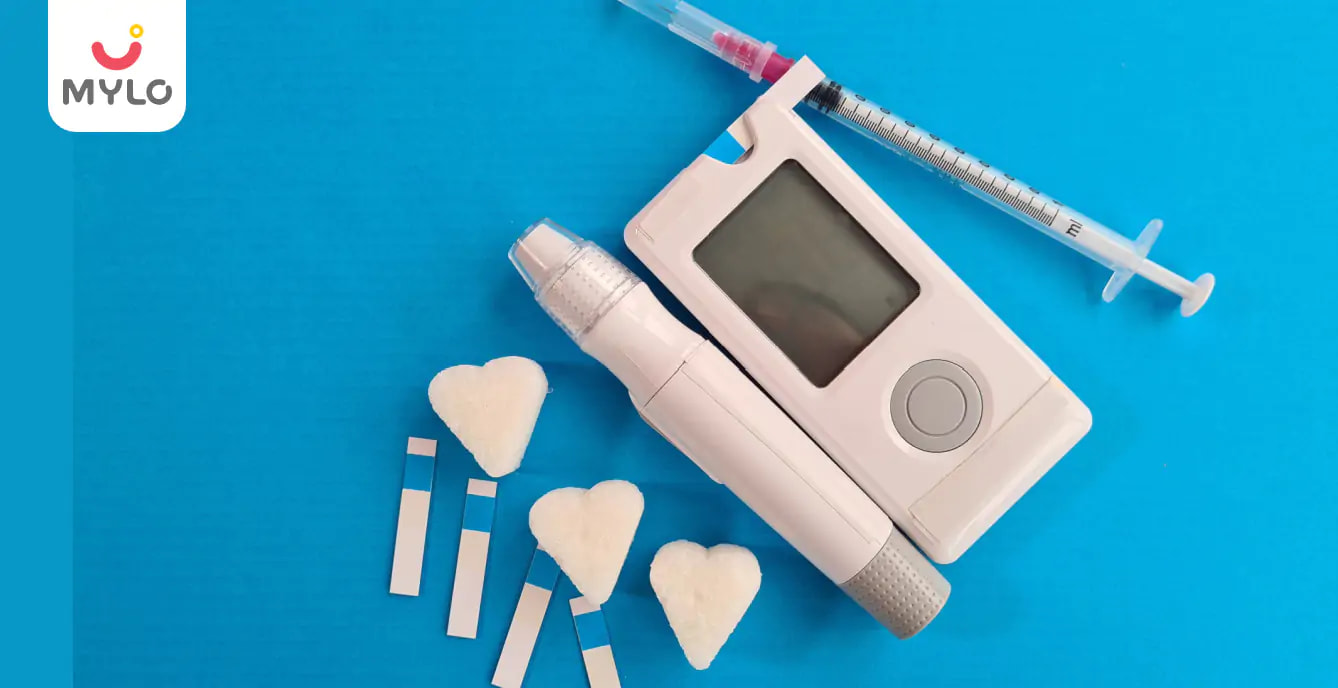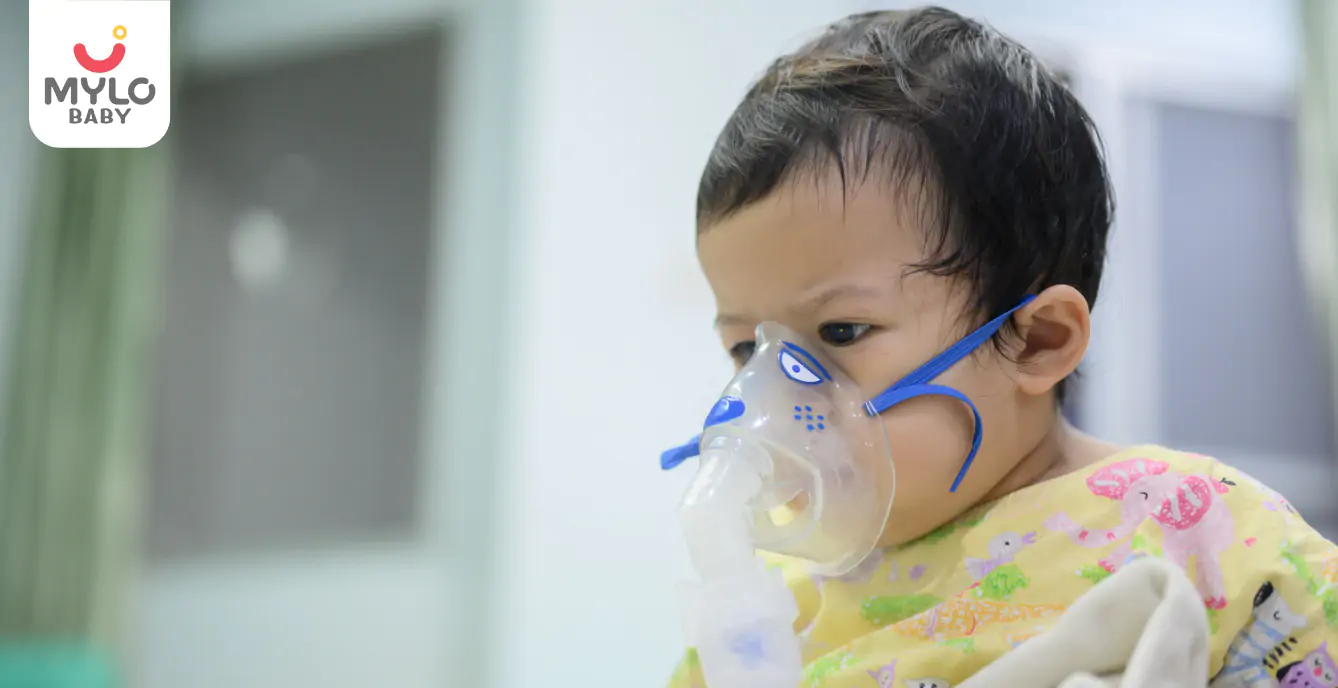Home

PCOS & PCOD

Insulin Resistance & PCOS: A Comprehensive Guide to Causes and Management
In this Article

PCOS & PCOD
Insulin Resistance & PCOS: A Comprehensive Guide to Causes and Management
Updated on 21 December 2023



Medically Reviewed by
Dr. Shruti Tanwar
C-section & gynae problems - MBBS| MS (OBS & Gynae)
View Profile

Insulin resistance & PCOS are closely linked, and the relationship between them plays a significant role in the development and management of PCOS. In this article, we will understand what is insulin resistance PCOS, the link between the two, how to identify this condition, its causes and effective management strategies.
What is the Link Between PCOS and Insulin Resistance?
Insulin resistance is a condition in which the body's cells become less responsive to the hormone insulin. Insulin is responsible for regulating blood sugar levels by allowing glucose to enter the cells for energy production.
When the cells become resistant to insulin, the body compensates by producing more insulin. This excess insulin can disrupt the delicate balance of hormones in the body, leading to hormonal imbalances and the development of PCOS.
Research has shown that up to 70% of women with PCOS have insulin resistance. Insulin resistance can worsen the symptoms of PCOS, such as irregular menstrual cycles, weight gain, and difficulty in losing weight.
You may also like: PCOS and Thyroid: Understanding the Complex Relationship and Finding Solutions
Signs of Insulin Resistance PCOS
Recognizing PCOS insulin resistance symptoms is important for early detection and treatment. Here are seven common signs that may indicate the presence of insulin resistance in women with PCOS:
1. Irregular Menstrual Cycles
Women with insulin resistance PCOS often experience irregular periods or may even skip periods altogether. This is because elevated insulin levels can interfere with the normal hormonal fluctuations that regulate the menstrual cycle.
2. Weight Gain
Insulin resistance can make it difficult for the body to break down and utilize glucose for energy. As a result, the excess glucose is stored as fat, leading to weight gain, particularly around the abdomen.
3. Excessive Hair Growth
Insulin resistance can cause an increase in the production of androgens, which are male hormones. This can result in excessive hair growth on the face, chest, and other areas of the body.
4. Acne
Elevated insulin levels can stimulate the production of oil in the skin, leading to clogged pores and the development of acne.
5. Dark Patches on the Skin
Insulin resistance can cause dark patches to develop on the skin, particularly in areas such as the neck, armpits, and groin.
6. Fatigue
The constant fluctuations in blood sugar levels associated with insulin resistance can lead to feelings of fatigue and low energy levels.
7. Difficulty Losing Weight
Women with insulin resistance PCOS often struggle to lose weight despite efforts to eat a healthy diet and exercise regularly. This is because insulin resistance can slow down the metabolism and make it harder for the body to burn calories efficiently.
You may also like: PCOS Weight Loss in 1 Month: How to Shed Pounds Fast
Causes of Insulin Resistance PCOS
Understanding the causes can provide valuable insights into the management and treatment of the condition. Here are five common causes:
1. Genetics
There is evidence to suggest that PCOS and insulin resistance may have a genetic component. If a woman has a family history of insulin resistance or PCOS, her risk of developing the condition may be higher.
2. Obesity
Excess weight, particularly around the abdomen, can increase the risk of insulin resistance and PCOS. The adipose tissue releases chemicals that can interfere with insulin signaling, leading to insulin resistance.
3. Poor Diet
A diet high in refined carbohydrates, sugars, and processed foods can contribute to insulin resistance. These foods cause a rapid spike in blood sugar levels, leading to increased insulin production and eventually insulin resistance.
4. Sedentary Lifestyle
Lack of physical activity can contribute to insulin resistance and PCOS. Exercise helps to improve insulin sensitivity and glucose utilization, reducing the risk of insulin resistance.
5. Hormonal Imbalances
Hormonal imbalances, such as elevated levels of testosterone and insulin-like growth factor 1 (IGF-1), can contribute to insulin resistance in women with PCOS.
Insulin Resistance PCOS Treatment Options
Managing PCOS and insulin resistance requires a comprehensive approach that addresses both the underlying insulin resistance and the symptoms associated with PCOS. Here are five treatment options that can be effective:
1. Lifestyle Modifications
Making lifestyle changes such as following a healthy diet, exercising regularly, and maintaining a healthy weight can help improve insulin sensitivity and manage PCOS symptoms.
2. Medication
Certain medications, such as metformin, can help improve insulin sensitivity and regulate menstrual cycles in women with insulin resistance PCOS.
3. Hormonal Therapy
Hormonal therapy, including the use of birth control pills, can help regulate menstrual cycles and reduce symptoms associated with PCOS.
4. Nutritional Supplements
Certain supplements, such as myo-inositol and omega-3 fatty acids, have shown promise in improving insulin sensitivity and reducing PCOS symptoms.
5. Insulin Sensitizing Agents
Medications such as thiazolidinediones (TZDs) and metformin can help improve insulin sensitivity and reduce insulin resistance in women with PCOS.
FAQ’s
1. What are some common PCOS insulin resistance symptoms?
These include irregular menstrual cycles, weight gain, excessive hair growth, acne, dark patches on the skin, fatigue, and difficulty losing weight. It is important to note that not all women with PCOS will have insulin resistance, but it is a common feature of the condition.
2. How to manage PCOS and insulin resistance naturally?
While medical interventions are often necessary to manage PCOS & insulin resistance, natural approaches like consuming a balanced diet, exercising regularly, managing stress, getting adequate sleep and managing weight can be beneficial.
Final Thoughts
Insulin resistance PCOS is a complex condition that requires a comprehensive approach to management and treatment. Understanding the link between PCOS and insulin resistance is crucial for early detection and effective intervention. By recognizing the signs of insulin resistance, addressing the underlying causes, and implementing appropriate treatment options, women with PCOS can manage their symptoms and improve their overall quality of life. It is important to work closely with a healthcare professional to develop an individualized treatment plan that suits your specific needs.
References
1. Rojas J, Chávez M, Olivar L, Rojas M, Morillo J, Mejías J, Calvo M, Bermúdez V. (2014). Polycystic ovary syndrome, insulin resistance, and obesity: navigating the pathophysiologic labyrinth. Int J Reprod Med.
2. Purwar A, Nagpure S. (2022). Insulin Resistance in Polycystic Ovarian Syndrome. Cureus.





Medically Reviewed by
Dr. Shruti Tanwar
C-section & gynae problems - MBBS| MS (OBS & Gynae)
View Profile


Written by
Anandita Sharma
Drawing on more than a decade of expertise in administration, Anandita Sharma currently serves as a content operations e
Read MoreGet baby's diet chart, and growth tips

Related Articles
Related Questions
Hello frnds..still no pain...doctor said head fix nhi hua hai..bt vagina me pain hai aur back pain bhi... anyone having same issues??

Kon kon c chije aisi hai jo pregnancy mei gas acidity jalan karti hain... Koi btayega plz bcz mujhe aksar khane ke baad hi samagh aata hai ki is chij se gas acidity jalan ho gyi hai. Please share your knowledge

I am 13 week pregnancy. Anyone having Storione-xt tablet. It better to have morning or night ???

Hlo to be moms....i hv a query...in my 9.5 wk i feel body joint pain like in ankle, knee, wrist, shoulder, toes....pain intensity is high...i cnt sleep....what should i do pls help....cn i cosult my doc.

Influenza and boostrix injection kisiko laga hai kya 8 month pregnancy me and q lagta hai ye plz reply me

Related Topics
RECENTLY PUBLISHED ARTICLES
our most recent articles

Breathlessness
Your heart stops beating when your baby feels breathless! Here are 5 things to know about infant breathlessness.

Care for Baby
Newborn Crying: What It Means and How to Handle It?

Growth & Development
When Do Babies Make Eye Contact: Keeping an Eye on Important Milestones

Women Interests
Is your baby getting breathless frequently? Five things you must know

Birthday Parties
50 Budget-Friendly Birthday Return Gift Ideas to Wow Your Guests

PCOS & PCOD
PCOS Exercise: Your Guide to Sweating Away PCOS
- PCOS and Pregnancy: How to Manage PCOS on the Path to Parenthood
- PCOS Tests: The Power of Diagnostic Tests in Your Health Journey
- Must-Read Ruskin Bond Short Stories for Little Minds
- The Top 10 Tenali Raman Stories You Must Read to Your Kids
- Ovulation Bleeding: The Ultimate Guide to Causes, Symptoms and Management
- A Guide to Recognizing Symptoms of Ovulation After HCG Injection
- Bulky Ovaries Explained: What Every Woman Should Be Aware Of
- Ovulation: The Key to Maximizing Your Chances of Conception and Pregnancy
- The Ultimate Compilation of Fancy Dress Ideas for Young Kids
- How Long Does Sperm Take to Reach the Egg?
- Pregnancy Symptoms After Ovulation Day by Day: Exploring the Daily Progression
- Signs Ovulation is Over: Your Guide to Understanding the End of Ovulation
- Top 15 Akbar and Birbal Stories for Young Kids
- How Soon After an Abortion Can You Get Pregnant?


AWARDS AND RECOGNITION

Mylo wins Forbes D2C Disruptor award

Mylo wins The Economic Times Promising Brands 2022
AS SEEN IN
















- Mylo Care: Effective and science-backed personal care and wellness solutions for a joyful you.
- Mylo Baby: Science-backed, gentle and effective personal care & hygiene range for your little one.
- Mylo Community: Trusted and empathetic community of 10mn+ parents and experts.
Product Categories
baby carrier | baby soap | baby wipes | stretch marks cream | baby cream | baby shampoo | baby massage oil | baby hair oil | stretch marks oil | baby body wash | baby powder | baby lotion | diaper rash cream | newborn diapers | teether | baby kajal | baby diapers | cloth diapers |




